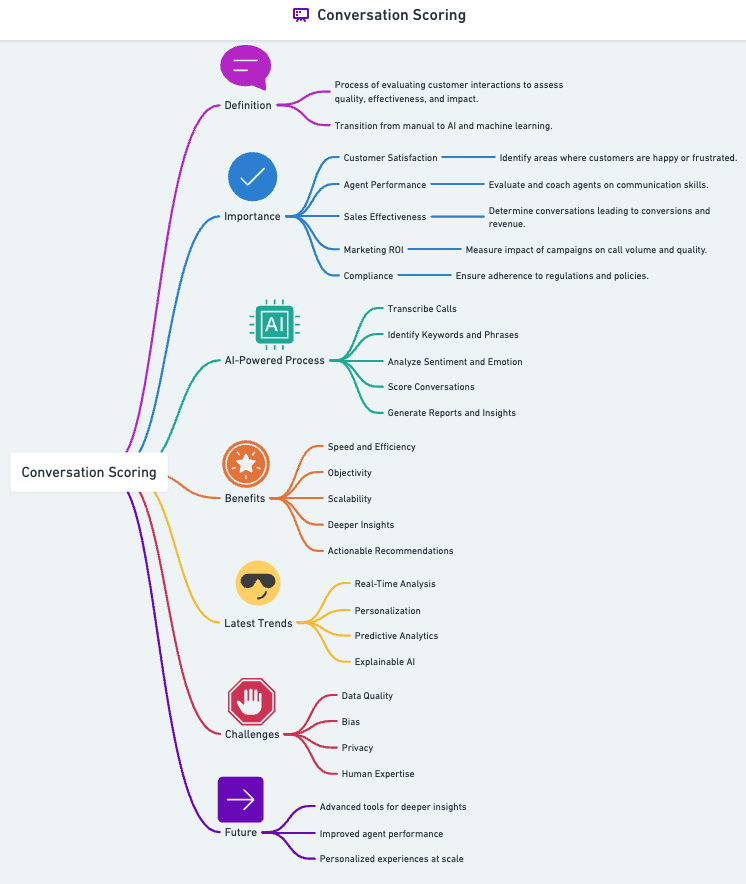
Conversation Scoring is the process of evaluating customer interactions, such as phone calls, chats, or emails, to assess their quality, effectiveness, and impact on business outcomes. Traditionally, this was done manually, but now AI and machine learning are transforming the process.
Conversation scoring provides valuable insights into:
AI-powered conversation scoring leverages natural language processing (NLP) and machine learning algorithms to analyze conversations at scale. These systems can:

The future of conversation scoring is promising. As AI and ML continue to advance, we can expect even more sophisticated tools that will enable businesses to gain deeper insights into their customer interactions, improve agent performance, and deliver personalized experiences at scale.
Call scoring is the process of assigning scores to business phone calls to determine their potential value as a lead. It ranks agents’ calls based on defined criteria to help deliver the best customer experience.
Scores are based on specific indicators, such as:
Call scoring evaluates the quality of customer interactions, grading calls based on factors like:
Calls can also be categorized by factors like length, location, time, keywords spoken, and outcome.
Call scoring focuses on customer experience and improving call center representative service quality, while lead scoring ranks potential customers based on online behavior and demographics.
Technology and automation are enhancing call scoring. AI automates the process, making it faster and more accurate. Hybrid scorecards combine human and machine scoring for highly specific evaluations. Call scoring is expanding to other channels and integrating with CRM systems for a complete view of customer interactions. Accuracy and personalization are also improving.
A scorecard measures and evaluates performance based on predefined criteria. It tracks progress towards business objectives using metrics or key performance indicators (KPIs). Examples include agent politeness, stating their name, empathizing, getting contact information, legal disclaimers, following company policy, tone of voice, hold time, call abandonment rate, and customer resolution.
Call scoring is a valuable tool for businesses to evaluate call center performance and improve customer service. With advancements in technology and automation, it will play an even more critical role in the future.

Book A Quick 15 Minute Call,
And We’ll Show You How To Unlock The Power Of Every Conversation.
©2024 All rights reserved – Convirza